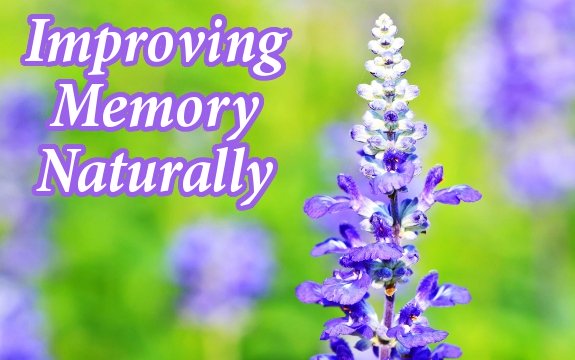Improving Memory Naturally: Sage Contains Similar Compounds as Modern Alzheimer’s Drugs

 Sage was named “Herb of the Year” in 2001 by the International Herb Association. Used mostly as a culinary herb today, this sister herb of rosemary was highly valued as a preservative with healing powers around the time of the Roman Empire. and it continues to be today. Some of the latest research shows how sage can boost memory and cognitive health.
Sage was named “Herb of the Year” in 2001 by the International Herb Association. Used mostly as a culinary herb today, this sister herb of rosemary was highly valued as a preservative with healing powers around the time of the Roman Empire. and it continues to be today. Some of the latest research shows how sage can boost memory and cognitive health.
Sage is part of the same mint family – Labiatae. Labiatae herbs all contain volatile oils, flavanoids, and phenolic acids which boost health in various ways. Dr. Ray Sahelian explains, “Phenolic acids are plant metabolites… Recent interest in phenolic acids stems from their potential protective role… against oxidative damage diseases (coronary heart disease, stroke, and cancers).”
The leaves and stems of sage contain these antioxidant enzymes that protect against free radical oxidative cell damage as well as provide inflammatory relief from ailments such as arthritis and asthma.
Sage for Enhancing Memory and Preventing Alzheimer’s
The Medicinal Plant Research Centre (MPRC) of England conducted studies at Newcastle and Northumbria Universities with sage oil herb pills against placebo pills. Those who took the sage performed much better with a word recall test than those who took the placebo.
Salvia miltiorrhiza, which is another name for sage, contains active compounds similar to those developed for modern drugs used to treat Alzheimer’s Disease.
It just so happens that the chemical in sage which boosted their memory is the same one that is found lacking in Alzheimer’s Disease victims. It needs to be noted that sister herb rosemary has similar benefits as well.
It’s a safe bet that the natural plant based compounds are safer than Big Pharma’s synthetic version, and at least as effective if not more so.
Sage Advice
In addition to simply including sage in your daily diet, you can experience the many benefits of sage by purchasing the herb as a tea, extract, or tincture. Make sure you get organic non-irradiated sage leaves and twigs only. If you buy bulk sage, you can make your own tincture inexpensively as well.
In the long run, home-made tinctures are the most economical way to have and use highly effective tinctures for a long time. Here are some basic instructions on how to make your own tinctures.
Use one or two dropper draws placed under the tongue or into a quarter-cup of water and swished around in the mouth and swallowed or simply ingested. This eliminates gastrointestinal (GI) tract clogging capsules and is more absorbable than capsules and tablets.
Dried sage can be stored in a jar and kept in a dry cool space, while tinctures can last for years in the same manner.

My wife uses sage extract to curb a wrist pain caused by an injury and says it is more effective than the prescription medication provided. I also use it prior to retiring to control nocturnal cramp; it is around 95% effective.